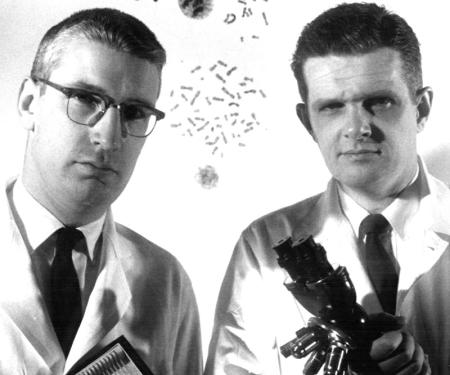2020 marks the 60th anniversary of the publications by Peter C. Nowell and David A. Hungerford that announced the discovery of the Philadelphia Chromosome.
From this early research has come the field of DNA testing for gene-based treatments.
The discovery of the Philadelphia Chromosome took place in 1959 under a Fox Chase Cancer Center microscope and was the result of a collaboration between two scientists from both Fox Chase (then known as the Institute for Cancer Research) and the University of Pennsylvania.
This 40 years of research, starting from the discovery of an abnormal chromosome in CML cells and ending in the design of a drug that can negate the consequences of that chromosomal change, illustrate how slow yet steady progress in cancer research is having a positive impact on the outlook for people with cancer. As more is learned about DNA changes in other cancers, researchers expect progress in designing new drugs targeted at specific molecular changes of other cancer types.
The American Cancer Society in 1999,40 years after the discovery of the Philadelphia Chromosome
In recognition of this milestone, a daylong symposium took place September 28, 2010, to celebrate the discovery itself and its ongoing implications for science and medicine. The event brought together scientists associated with the original discovery, including Peter Nowell, as well as some of the scientists who followed in their footsteps, with seminal studies of their own.
Science journalist Jessica Wapner brings this story vividly to life in her book, The Philadelphia Chromosome. View the book launch event at Fox Chase Cancer Center, May 14, 2013. (58:53)Read more about the history of the Philadelphia Chromosome Discovery

